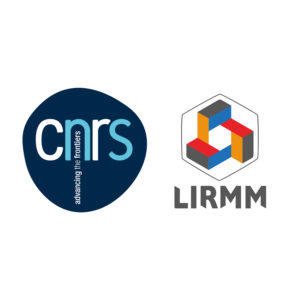Role in the Project
CNRS – LIRMM is a key expert of cable-driven parallel robots in Europe and will be involved in all steps of the design and validation of the prototype cable robot to build, repair, and maintain a building façade. CNRS – LIRMM is notably involved in the design of the robot end effector and supporting structure, in robot calibration and advanced control techniques, and in the definition of sensing devices and collision detection systems.
CNRS – LIRMM
The Centre National de la Recherche Scientifique (CNRS) is a public organization under the responsibility of the French Ministry of Education and Research. As the largest fundamental research organization in Europe, CNRS carries out research in all fields of knowledge, through its ten scientific institutes. CNRS encourages collaboration between specialists from different disciplines in particular with universities thus opening new fields of enquiry to meet social and economic needs.
The Montpellier Laboratory of Informatics, Robotics, and Micro-electronics (LIRMM in French) is a Joint Research Unit (JRU 5506 ) of University of Montpellier and the CNRS. LIRMM’s research activities position are at the heart of information, communications and system sciences and technologies. These research activities cover a broad range of topics, ranging from computer science to robotic systems. The team DEXTER of LIRMM robotics department focuses on design, control, and prototyping of efficient robot manipulators able to achieve accurate and/or very fast motions, possibly across wide workspaces. To reach these goals, each fundamental research activity is validated by realistic experiments which help to valuate these results with industrial partners. We emphasize innovation in a mechatronics approach and our main contributions are addressing two main sectors: Parallel robotics for industrial applications and robotics for health care from assistive robotics to surgery.


